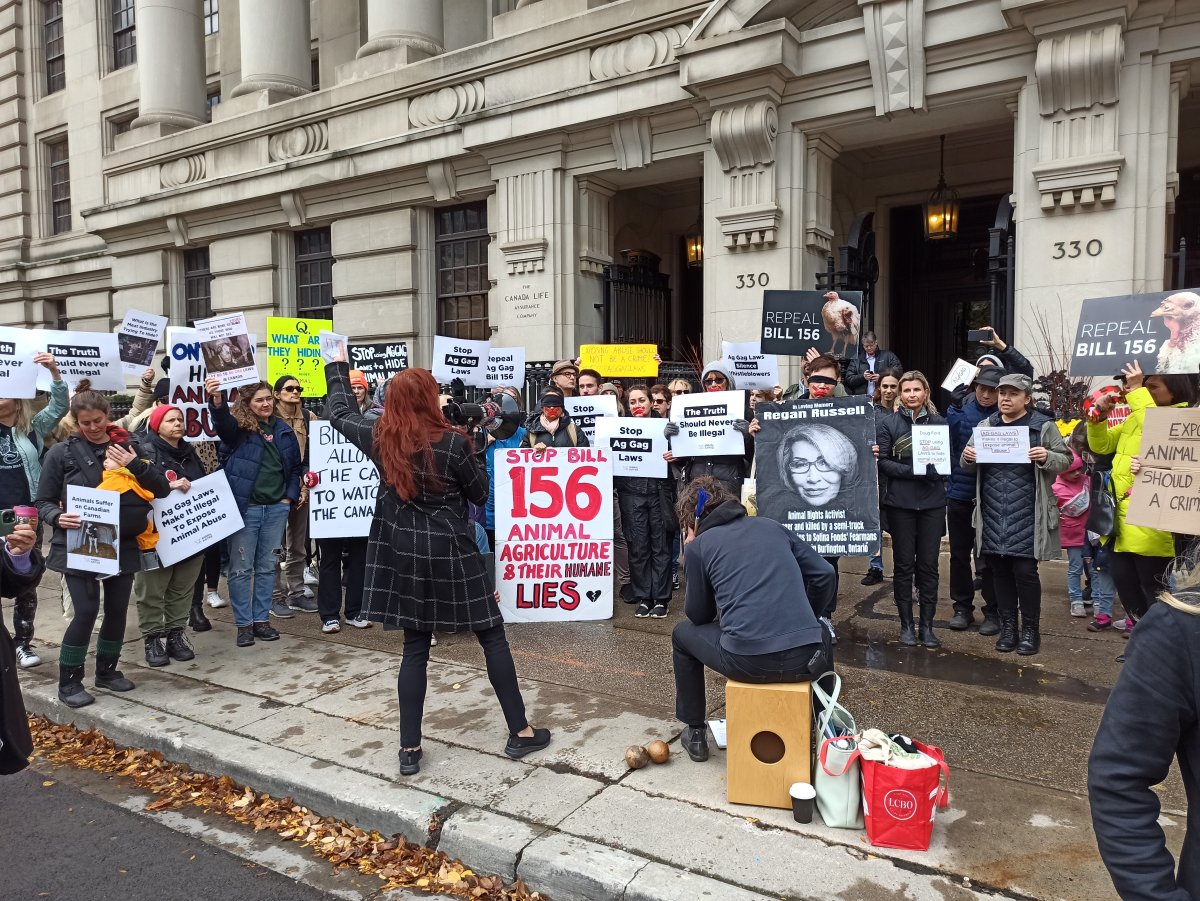A legal battle over an Ontario law protecting the local livestock industry from undercover filming of animal welfare at factory farms is underway.

The claim, expected to be heard over three days by a Superior Court Judge, will seek to overturn the Security from Trespass and Animal Safety Act, which came into effect in September 2020 and limits interactions between the public and any element of the food supply business including farm animals, truckers and farmers.
Applicants Animal Justice, journalist Jessica Scott -Reid, and activist Louise Jorgensen contest in court documents the Act, which increased fines for people trespassing on Ontario farms and makes it illegal for those seeking to obstruct trucks carrying animals, violates the Canadian Charter of Rights and Freedoms.
Specifically, section 2B of the charter and the right to free expression to see what one wants and not be censored.
It also allows the right to freely receive information as a member of the public.
Animal Justice executive director Camille Labchuk says undercover exposes are the only way information about animals being abused can be “brought to light” since there are no regulations on inspections tied to animal welfare at Ontario farms.
“There are no government inspectors doing proactive inspections,” Labchuk contests.
“So unless someone is a whistleblower wearing a hidden camera … capturing suffering that might be a crime, it’s impossible for law enforcement or for the public to know about it.”
The law punishes offenders in two scenarios: those who work on a farm and access an area that’s not a part of their daily routine to share pictures of abuse. or someone affiliated with an animal protection organization who gets a job at a farm and film and exposes what they see.
“Those are the types of people that can be punished by this, and what would happen is those folks could be fined tens of thousands of dollars and be in very serious trouble simply for the act of sharing this information publicly,” Labchuk explained.

Get daily National news
Meanwhile, the Ministry of the Attorney General’s legal team insists the Act does not breach charter rights and is not an “ag-gag” law.
The written defence from the province says the law “does not impede expression by activists, journalists or anyone else” but simply protects animals and people from harm and the integrity of the food supply from biosecurity risks by restricting access.
The act is the work of former agriculture minister Ernie Hardeman who proposed the law in 2019, arguing it would eliminate the “risk of introducing contaminants into the food supply chain” and protect “the safety of drivers of motor vehicles.”
The bill imposes penalties of up to $15,000 for a first offence and $25,000 for subsequent offences tied to trespassing or obstructing vehicles carrying farm animals.
Samuel Trosow, an associate professor of law at the University of Western Ontario, is not surprised the act is facing a legal challenge, insisting there are “constitutional problems” in the way it was written.
He submits the province should have made tweaks to its own Trespass to Property Act instead.
“What the province should have done was reviewed the Trespass to Property Act and asked the question, do we need to make some tweaks?” said Trsow.
“Do we need to make some amendments to this existing law that would sort of protect the interests that the claimants are making?”
Where the law could be potentially overturned, according to Trosow, is a charter edict under section one that puts the onus on governments to show there were no “less restrictive alternative solutions.”
“I think this particular measure is so susceptible to being overturned because there were indeed less restrictive alternatives that the government could have enacted to deal with the problem,” he said.
The law came after some high-profile incidents in recent years headlined by Toronto animal advocate Anita Kranjc‘s effort in 2015 to give water to pigs on a truck taking them to slaughter at a pork processing plant in Burlington.
In June 2020, Hamilton activist Regan Russell died in front of that plant when she was hit by a transport truck near Harvester Road and Appleby Line during another demonstration.
The application is expected to end on Wednesday.
Superior Court of Justice Judge Markus Koehnen is likely to make a decision anywhere between 3 to 6 months.






Comments